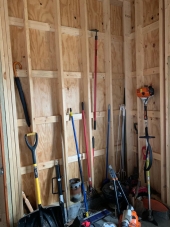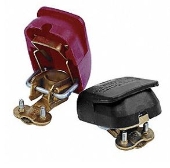
 1
1




 1
1




 1
1




Travis Johnson wrote:I was doing some checking, and I got a few options for this.
I have a 35 HP Isuzu diesel engine that came off a tractor trailer refrigeration unit that would power my Gen-Set, but I also have a 6 cylinder diesel engine sitting in an engine stand. I was going to use it for a sawmill, so it is all set up on an engine stand, and even has a hand clutch bolted to it, but it was originally designed to operate a 30 KW gen-set. I thought it was bigger than it was, but it seems it is only 63 hp so it will not consume a lot of fuel.
My house takes about 450,000 btus to heat it per day, (5 gallons of propane at roughly 91,000 btu's per gallon), and assuming an engine consumes 10 gallons per day of fuel, it would kick off roughly 1.3 million btu's per day (10 gallons of fuel oil at 131,000 btu's per gallon), so even with some heat losses, there should be more than enough heat to heat my home.
I also checked my electric bill and it seems I use about 300 KW's per month, so I would only use half of the total KW's produced...
 1
1












David Baillie wrote:I understand better now. I think I think plate exchangers because I've always incorporated domestic hot water.

|
You'll find me in my office. I'll probably be drinking. And reading this tiny ad.
permaculture bootcamp - gardening gardeners; grow the food you eat and build your own home
https://permies.com/wiki/bootcamp
|






